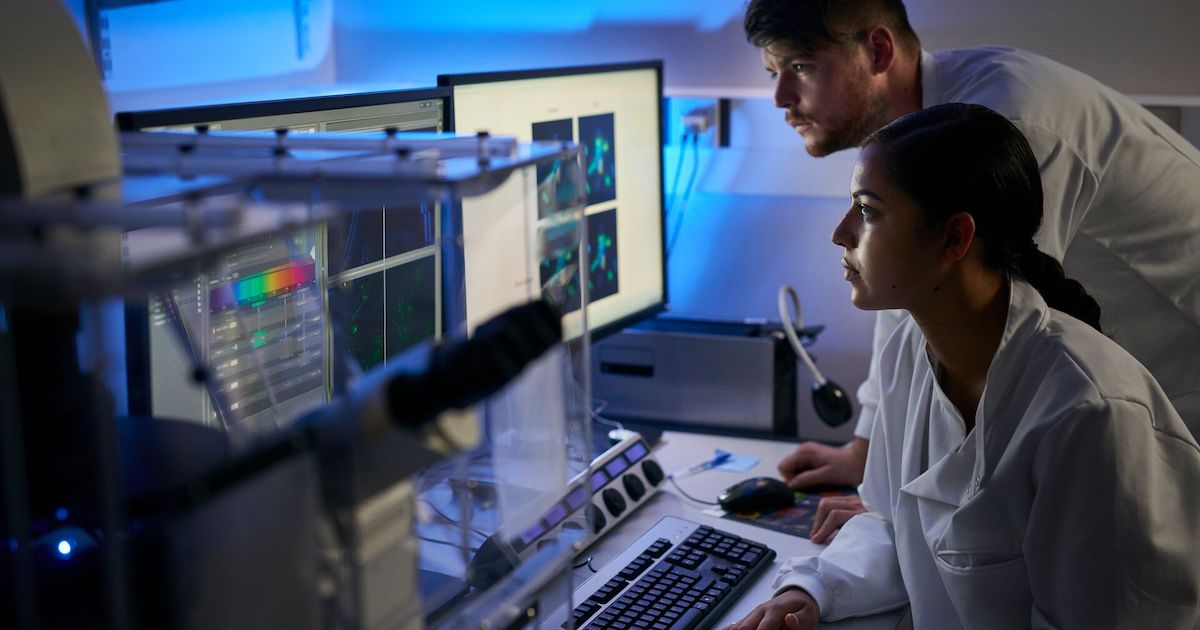Contributed: Advancing patient care through simulation learning
2023-09-29

Preview
来源: mobihealthnews
Photo: Matt Lincoln/Getty Images
The significance of robust education and training is unequivocal in the dynamic realm of healthcare, marked by relentless advances in medical science and a steadfast pivot toward patient-centric care models.
In today's era of reimagined healthcare possibilities, it becomes imperative for institutions to recognize that the foundation of elevated patient outcomes rests on cultivating a skilled, adaptable and empowered healthcare workforce.
Simulating learning: connecting theoretical concepts with practical application
Amidst this transformative epoch, simulation learning emerges as a beacon of innovation and progress. Some institutions have embraced this paradigm shift, viewing it as a pivotal element in shaping the future of healthcare professionals.
Empowering clinical acumen and confidence
Simulation learning bridges the chasm between theory and practice, providing aspiring medical practitioners with a safe and controlled environment to refine skills, make decisions and navigate intricate clinical scenarios. Within this simulated reality, where the consequences mirror real life, students and trainees develop clinical insight, hone critical thinking and cultivate a deep reservoir of confidence. This empowers them to transition seamlessly from theoretical learning to real-world application, bringing competence and self-assuredness to their roles.
Technological integration: augmented reality and 3D printing
The infusion of cutting-edge technologies underscores the commitment to elevate patient care through simulation learning. Augmented reality (AR) and 3D printing, once confined to the realm of imagination, now play instrumental roles within leading simulation centers.
AR transforms medical procedure simulation by immersing students in realistic scenarios where they can don AR headsets to overlay 3D holographic representations of patient anatomy onto mannequins, enabling practice in surgeries or catheter insertions with lifelike visual feedback. 3D printing also facilitates the creation of detailed anatomical models, granting students hands-on access to explore and study the intricacies of the human body, such as dissecting 3D-printed heart models for interactive learning.
The synergy of augmented reality and 3D printing reaches its zenith in surgical training, where trainee surgeons visualize patient anatomy through AR headsets and practice surgical procedures on 3D-printed anatomical models, creating hyperrealistic surgical simulators. These instances exemplify the transformative impact of augmented reality and 3D printing on simulation learning, ushering in immersive and previously inconceivable training experiences.
Fostering interdisciplinary collaboration
The impact of simulation learning extends beyond the realm of skill acquisition. It fosters interdisciplinary collaboration, bridging the traditional silos of medical disciplines and nurturing a holistic understanding of patient care. As future healthcare professionals submerge themselves in these immersive scenarios, they learn to choreograph the intricate dance of teamwork, effective communication and collective decision-making. These lessons become the bedrock for harmonious collaboration in the fast-paced healthcare arena.
Empathy and patient-centered care
Simulation learning also finds resonance in the principles of patient-centered care. Allowing a window into patients' perspectives and vulnerabilities nurtures empathy among future professionals. This deepened understanding equips them to deliver care transcending medical proficiency, embracing the emotional nuances of patients' healthcare journeys.
A future defined by excellence and empathy
In a world propelled by rapid advancements, it's essential to acknowledge that the journey to exceptional patient care is paved with innovation and education. By harnessing the transformative power of simulation learning, we transcend the boundaries of traditional education, stepping into a realm where theory and practice converge seamlessly. By nurturing emerging healthcare talents, we light the way to a future of patient care marked by excellence, empathy and advancements.
The path to unprecedented patient care intertwines innovation and education. As we harness the transformative potential of simulation learning, we transcend the confines of traditional education, illuminating a trajectory toward a patient-centric healthcare landscape that defines itself by outstanding care, empowerment and unceasing improvement.

Preview
来源: mobihealthnews
Dr. Abdullah Ghazi is a Urology Consultant specializing in NeuroUrology and GenitoUrinary Reconstruction. He serves as the head of academic and training affairs at King Faisal Specialist Hospital and Research Center in Saudi Arabia.
Ghazi has held key roles as a NeuroUrologist and GenitoUrinary Reconstructive Surgeon at various medical institutions. He actively participates in conferences and symposiums, where he has been a distinguished speaker, and he has contributed to the field through various workshops and research activities.
Tags: Dr. Abdullah Ghazi, simultation learning, Augmented Reality, 3D printing, clinical workforce, contributed content
更多内容,请访问原始网站
文中所述内容并不反映新药情报库及其所属公司任何意见及观点,如有版权侵扰或错误之处,请及时联系我们,我们会在24小时内配合处理。
适应症
-靶点
-药物
-热门报告
立即开始免费试用!
智慧芽新药情报库是智慧芽专为生命科学人士构建的基于AI的创新药情报平台,助您全方位提升您的研发与决策效率。
立即开始数据试用!
智慧芽新药库数据也通过智慧芽数据服务平台,以API或者数据包形式对外开放,助您更加充分利用智慧芽新药情报信息。



